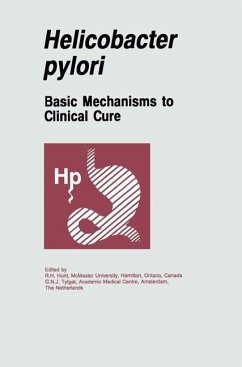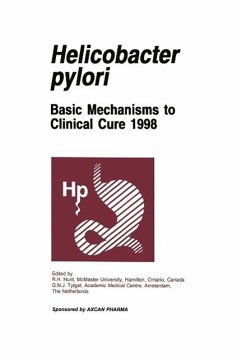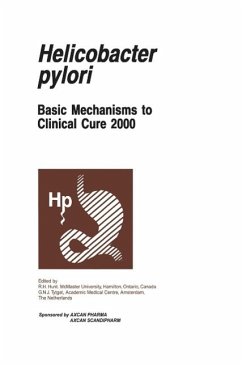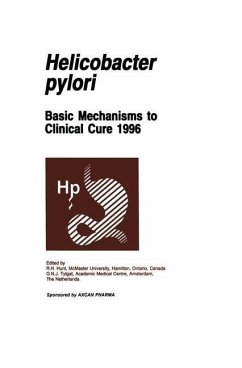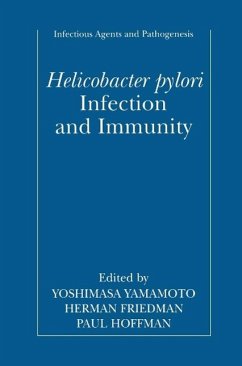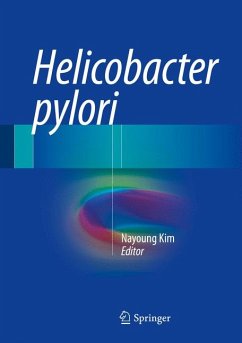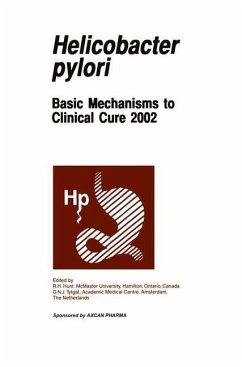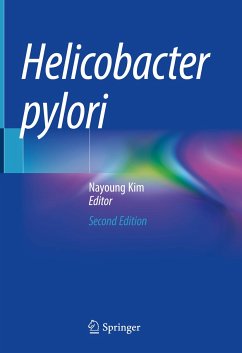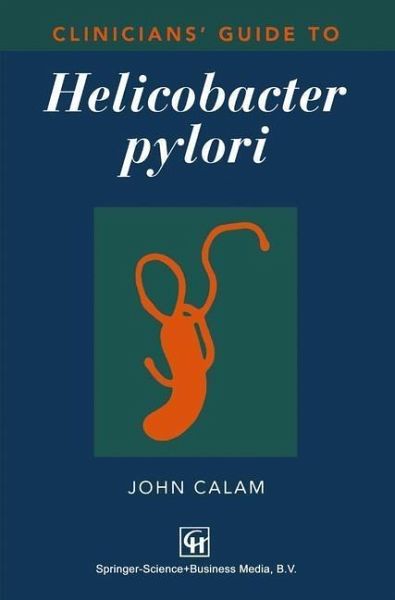
Clinicians' Guide to Helicobacter pylori (eBook, PDF)
Versandkostenfrei!
Sofort per Download lieferbar
40,95 €
inkl. MwSt.
Weitere Ausgaben:

PAYBACK Punkte
20 °P sammeln!
It has been exciting to witness the discovery that most peptic ulcers are caused by a bacterium that is relatively easy to eradicate. Most doctors now aim to give their patients the benefits of this unexpected breakthrough, but the new knowledge raises many questions. One is precisely which groups of patients to treat. We should restrict ourselves to the infected, but which of the many tests should we use to identify them? Having decided to treat, which of the plethora of regimens should we use? These questions have been particularly difficult to address at a time when knowledge and c1inical t...
It has been exciting to witness the discovery that most peptic ulcers are caused by a bacterium that is relatively easy to eradicate. Most doctors now aim to give their patients the benefits of this unexpected breakthrough, but the new knowledge raises many questions. One is precisely which groups of patients to treat. We should restrict ourselves to the infected, but which of the many tests should we use to identify them? Having decided to treat, which of the plethora of regimens should we use? These questions have been particularly difficult to address at a time when knowledge and c1inical techniques are still developing rapidly. This book aims to present the current scene in an objective and digestible form, so that c1inicians can choose strategies which suit their local needs. The relative merits of the various c1inical ap proaches are discussed, together with some scientifie background to prepare the reader for future developments. The book is primarily aimed at practising c1inieians but should be equally useful for stu dents preparing for examinations. It will also provide a source of reference to workers in the pharmaceutical industry, journalism or marketing who need to get 'up-to-speed' in this area.
Dieser Download kann aus rechtlichen Gründen nur mit Rechnungsadresse in A, B, BG, CY, CZ, D, DK, EW, E, FIN, F, GR, HR, H, IRL, I, LT, L, LR, M, NL, PL, P, R, S, SLO, SK ausgeliefert werden.



